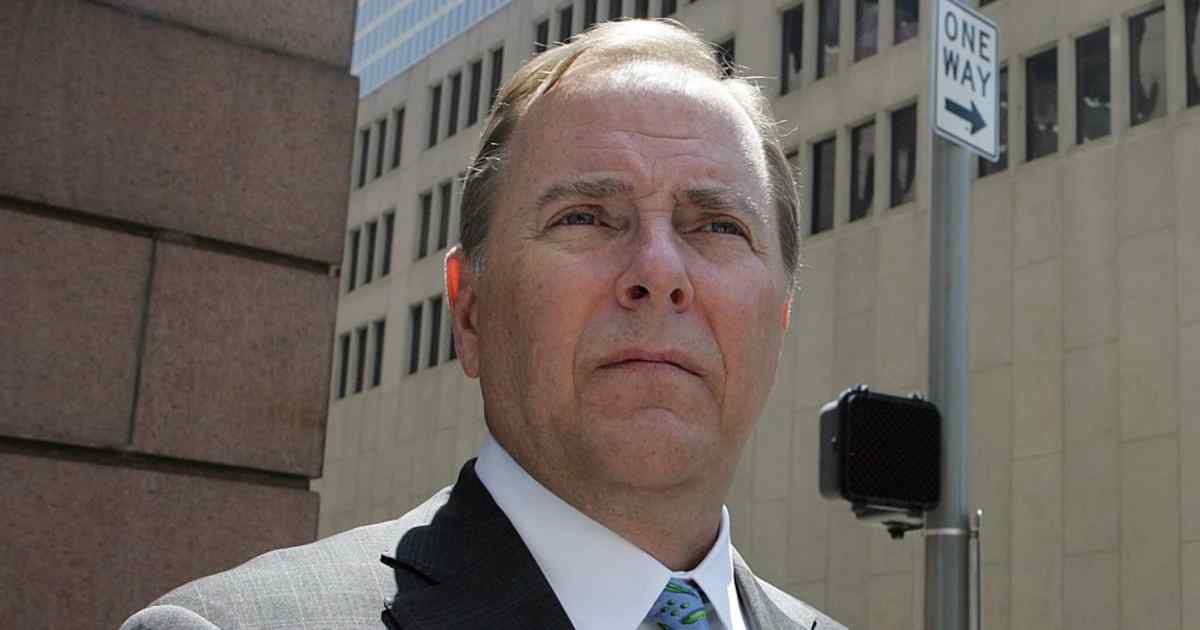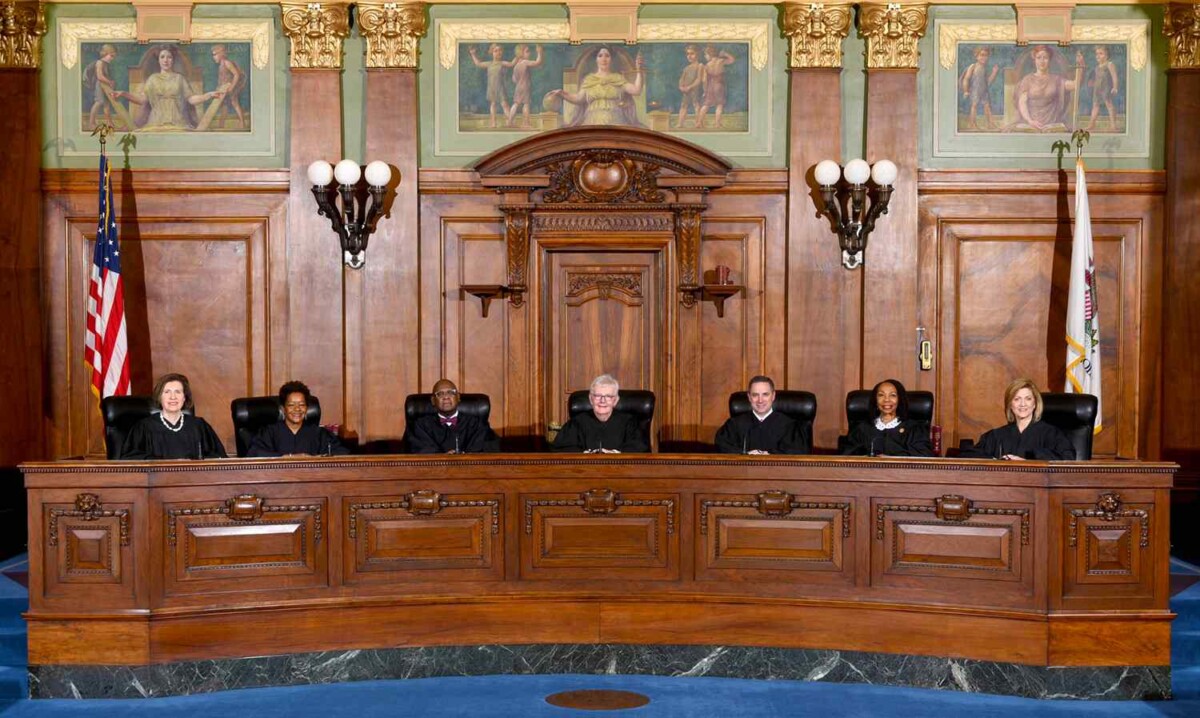Introduction
An ongoing problem in financial markets is illegal insider trading, which is characterized by the use of non-public knowledge for financial benefit. Trading mechanisms and investor confidence are both compromised by this immoral activity. People and organizations have fallen victim to the temptation of private information on many occasions, as shown by numerous high-profile examples. In this exploration of illegal insider trading examples, we expose the complex web of dishonesty that endangers the integrity and openness of our markets by investigating prominent instances of unlawful insider trading that have permanently altered the face of finance.
Insider Trading: An Overview
The term “insider trading” describes when a person who has non-public, material knowledge about a security purchases or sells that security. Due to their access to confidential information, these individuals have a leg up on the rest of the investing public. Executives engaging in insider trading by purchasing or selling business stock using confidential knowledge is one example. Another is individuals disclosing sensitive information to friends and associates.
Intrigue In The Market
Executives From Corporations
Company directors, officers, and employees can engage in insider trading when they utilize proprietary knowledge for their personal benefit. Impending mergers, significant financial outcomes, or other events may trigger stock purchases and sales.
Connections Between Tipper And Tippee
Friends, relatives, and acquaintances of an insider may gain access to sensitive information. And use it for their own financial gain. There may be legal ramifications for both the one providing the tip and the one receiving it.
Front-Running
One kind of front-running is when a broker or other financial expert uses their client’s pending orders to make trades for their own account. You can leverage the market’s reaction to big trades in this way.
How It Will Affect Banking And Finance And What It Will Mean Legally
Honesty And Integrity In The Market
Insider trading skews stock prices and makes it harder for investors to compete fairly by disrupting the normal flow of information in the financial markets. Financial market players lose faith in the integrity of the system when insiders get an unfair advantage due to unequal access.
Implications For The Economy
Investor Trust: Insider trading has the potential to damage investor trust in the financial system. Which in turn can discourage potential investors and affect market liquidity. Allocation of Resources: Economic inefficiencies can arise from investors making decisions with insufficient or incorrect information. Which can lead to misallocation of resources.
Legal Implications
U.S. rules like the Securities Exchange Act of 1934 and the Insider Trading Sanctions Act of 1984 make insider trading a violation of securities laws in many jurisdictions, including the United States. Investigating and prosecuting insider trading crimes is an important responsibility of regulatory authorities like the United States Securities and Exchange Commission (SEC).
Punishment And Prevention
Fines and disgorgement of earnings are examples of civil penalties. Authorities may impose that on those found guilty of insider trading, in addition to criminal punishments. Imprisonment may result from serious criminal accusations. Legal repercussions serve as a deterrent against insider trading. By imposing heavy fines, we send a strong message that we will not accept such behavior.
Steps To Ensure Compliance
To avoid insider trading, several companies have instituted regulations and processes that employees must follow. During these times, insiders cannot trade during “blackouts.” Education and training foster compliance and ethical conduct. That executives and employees receive on the subject of insider trading. And its legal and ethical ramifications.
Jeffrey Skilling

Skilling’s Role In The Enron Scandal
During the dark days of Enron’s financial mismanagement and corporate malfeasance, Jeffrey Skilling was the company’s CFO. The once-respected energy corporation Enron employed deceptive accounting techniques. It is in order to disguise its growing debts and financial difficulties. Skilling was instrumental in coordinating the plan to provide investors and the public an inaccurate picture of Enron’s financial health.
Convictions And Charges Of Insider Trading
Skilling faced one of the most notable charges, insider trading. Skilling safeguarded his own interests by making use of confidential knowledge regarding Enron’s unstable financial status. To prevent huge losses before the public learned about Enron’s issues, he used measures like selling off shares strategically. A major legal triumph in exposing the extent of Enron’s corporate wrongdoing occurred in 2006. It is when a federal jury found Skilling guilty on nineteen counts, including one count of insider trading.
Ivan Boesky And Michael Milken
Insider Trading By Boesky And Milken
Michael Milken, nicknamed the “junk bond king,” pioneered the field of high-yield corporate bonds. But he got into difficulty with the law because of his relationship with Ivan Boesky. An investment banker named Boesky participated in insider trading by making a profit off of confidential information regarding upcoming mergers. Milken supplied much of it. Boesky’s guilty plea and cooperation with the SEC drew Milken into a larger insider trading case including the manipulation of securities.
Using Mergers And Acquisitions As A Springboard For Insider Trading
The pair’s illegal operations centred on making use of data pertaining to acquisitions and mergers. By purchasing shares before the public announcement and selling them at a premium afterwards. They were able to execute profitable stock trades due to their knowledge of upcoming business mergers. This instance demonstrated how easily insider trading may affect the market, particularly around major company announcements.
R. Foster Winans
Winans’ Financial Journalism Scheme And Its Relevance
By informing a stockbroker ahead of time about his forthcoming columns, Wall Street Journal columnist R. Foster Winans became involved in an insider trading operation. Before making Winans’ insights public knowledge, the broker earned money off these trades using this non-public information. A portion of the illegal profits went to Winans, highlighting the ethical dilemmas that exist in financial journalism.
Insider Trading And The Role Of The United States Supreme Court
The odd legal turn that Winans’ case took was because the “inside” information had nothing to do with the companies in question. Winans’ important column will highlight the companies that the information was actually regarding. The involvement of the U.S. Supreme Court brought attention to the difficulties in defining insider trading. Highlighting the need to include both conventional business knowledge and facts published in the media that can impact the market.
Goldman Sachs
Engaging In Illegal Acts By Plotkin And Pajcin
Goldman Sachs associates Eugene Plotkin and David Pajcin planned a web of illicit insider trading-related operations. As part of their plot, Plotkin—a research analyst at Goldman Sachs—and Pajcin—a former employee of the investment banking firm—hired a Merrill Lynch employee . It is to give them information about big mergers, such as the one between Reebok and Adidas. Certain companies were going to be acquired when the word got out.
The two of them would buy their shares and then sell them for a profit. They also paid someone to take an advance edition of BusinessWeek, which is reminiscent of R. Foster Winans’s practices. The case highlights the unethical practices and misuse of confidential information prevalent in large investment banks.
Putting Regulatory Oversight To The Test
The case between Goldman Sachs and BusinessWeek brings up valid points. It is regarding the efficacy of regulatory supervision in the financial markets. Major investment bank employees’ involvement in such obvious insider trading raises serious concerns regarding the efficacy of current regulatory safeguards. We need to reevaluate the current regulatory framework to determine if it can effectively monitor the intricate. And interdependent financial sector and prevent illicit actions.
James McDermott Jr.
Mcdermott’s Involvement In Passing Insider Tips
An insider trading scandal involving sending tips on planned bank mergers to his mistress, adult-film actress Kathryn Gannon. Better known as Marilyn Star, ensnared James McDermott Jr., the former chairman and CEO of Wall Street investment bank Keefe, Bruyette & Woods. In the end, McDermott was arrested because his activities caused Gannon to make a lot of money. His story exemplifies how powerful people can abuse their positions to steal trade secrets. And put the financial markets at risk.
The Impact Of Personal Relationships On Insider Trading
Personal relationships have a significant role in insider trading, as demonstrated by McDermott’s case. The fact that his mistress benefited from the secret tips he gave with her .It highlights the dangers of abusing trust and interpersonal connections for financial gain. This story should serve as a warning about the dangers of letting personal connections. And sensitive financial information mix, and the importance of acting ethically at all times.
Martha Stewart

An insider trading case involving ImClone Systems put Martha Stewart, who is famous for her prowess in the home products market, in hot water with the law. Stewart and her stockbroker, Peter Bacanovic, were both charged with securities fraud by the SEC. The allegations alleged that Stewart had received an unlawful tip regarding the imminent decline of ImClone’s shares from Bacanovic. Stewart used this knowledge to her advantage by selling her shares to prevent losses; her actions resulted in felony convictions.
The biotech industry’s susceptibility to insider trading is shown by Stewart’s case. The market value of biotech companies is very sensitive to the results of clinical trials. Therefore any non-public information regarding these results could result in substantial financial benefits. This case study highlights the difficulties of ensuring fair competition in sectors. Where confidential information can have a significant impact on stock prices.
Raj Rajaratnam
The rise of immigrant-turned-billionaire Raj Rajaratnam was tainted by his conviction on fourteen counts, one of which was securities fraud. It is worth mentioning that wiretaps were used by federal investigators to capture Rajaratnam on multiple occasions divulging confidential information to associates and acquaintances. Wiretaps, which were previously only used in drug and organised crime investigations. It were used to combat financial misdeeds, marking a watershed event in the enforcement of insider trading rules.
The case of Rajaratnam represents progress in the implementation of rules against insider trading. Wiretaps showed that regulators were taking the fight against financial fraud seriously. A dedication to preserving the integrity of financial markets through stronger enforcement measures. It was signalled by the case’s emphasis on the changing tactics used by authorities to apprehend and punish insider traders.
Steven A. Cohen
The Insider Trading Case involving SAC Capital Advisors
A well-known individual on Wall Street, Steven A. Cohen, established SAC Capital Advisors, a well-respected hedge fund. There were major legal issues for the company, nevertheless, after several of its workers were discovered to have engaged in insider trading. This case was all about how someone got an unfair financial edge by acquiring non-public information illegally and then using it. Prosecutors said that insider trading was commonplace at SAC Capital Advisors because the company promoted an environment that ignored misconduct.
Following investigations by the SEC and other regulatory agencies, it was found that SAC had a history of wrongdoing. Cohen was not personally involved in the insider trading. but his supervisorial abilities and whether or not he had ignored wrongdoing at his firm were called into doubt.
Cohen’s Obstacles And Penalties
After the insider trading incident at SAC Capital Advisors, Steven A. Cohen encountered multiple obstacles. As the intensity of regulatory scrutiny increased, one of the main issues was explaining his role as the creator and CEO of the hedge fund. While Cohen escaped individual criminal accusations, SAC Capital Advisors did plead guilty to insider trading in 2013.
Cohen and his firm felt the financial effects to a heavy degree. As one of the biggest insider trading settlements ever, SAC accepted a record-breaking $1.8 billion in penalties. As an additional component of the deal, Cohen consented to wind down SAC’s investment advice business. And was temporarily barred from overseeing any outside funds. Though he escaped individual criminal responsibility, Cohen nevertheless suffered tremendous reputational harm. And saw his once-thriving hedge fund enterprise crumble as a result of this major defeat.
Bryan Shaw And X. Scott London
Insider Trading For A Friend In London
Scott London and Bryan Shaw’s case illuminated the complexities of insider trading. And showed how the financial sector can have ethical failings. Scott London, a partner at the prominent accounting company KPMG, was involved in insider trading . It is when he shared confidential customer information with his friend Bryan Shaw. The assumption that the profits would be minimal suggested that London’s purpose was to assist a buddy.
As part of its activities, London disclosed sensitive information regarding upcoming mergers and acquisitions, which Shaw used to make lucrative stock trades. The insider trading plan was more than just a friendly exchange; in exchange for the exclusive tips, London got serious money and nice presents. The case demonstrated how people in authoritative positions can be tempted to act unethically when their personal lives and work get mixed together.
Fair Play And The Role Of Anti-Insider Trading Laws
Cases like the one involving Scott London and Bryan Shaw highlight how important it is to have regulations against insider trading in order to keep financial markets healthy. The practice of insider trading creates an uneven playing field by giving certain market players an unfair edge. It became clear from this occurrence how important it is to have strict laws and ethical standards in place to stop people who have access to sensitive information from using it illicitly.
For insider trading to be punished, regulatory agencies like the SEC must investigate and bring individuals responsible to justice. As the case demonstrated, it is critical for businesses to encourage a compliance culture by providing training on the ethical and legal ramifications of insider trading and encouraging staff to report any questionable behaviour. On the whole, the London and Shaw case demonstrated how crucial it is to act ethically and fairly in order to keep investors’ faith in the financial markets.
Phil Mickelson
Mickelson’s Prosecution For Insider Trading
The world-famous golfer Phil Mickelson became embroiled in a high-profile insider trading lawsuit. Concerning the biotech business ImClone Systems, Inc.’s stock, the case revolved around Mickelson’s stockbroker, Peter Bacanovic, providing him with an unlawful tip. Before the FDA announcement, Bacanovic had told Mickelson that important people, including ImClone’s CEO, were selling their shares.
By selling his ImClone shares in reaction to this insider information, Mickelson was able to avert costly losses. After receiving the private tip, the SEC proceeded to accuse Mickelson of unlawful insider trading and lodged securities fraud charges against him and Bacanovic. The case brought up problems regarding the duties of those who have access to confidential information and the consequences of acting on it, even if only indirectly.
Difficulty Resolving Cases Involving Personal Affiliations
The insider trading case involving Phil Mickelson demonstrated the difficulties of prosecuting someone engaged in insider trading when interpersonal ties are entrenched. Because the authorities were unable to establish beyond a reasonable doubt that Mickelson knew where the insider information came from or that he illegally traded, he evaded criminal penalties. This case really drove home the point that insider trading prosecutions need to prove specific purpose and knowledge.
On top of that, the Mickelson case started a conversation regarding how hard it is to prove guilt when someone gets stock tips without knowing where they came from. Establishing that Mickelson knew the information he got was not valid was a difficult task for the prosecution. Regardless of the complications surrounding the law, the case highlighted the ethical and legal responsibilities that persons have when handling confidential information in the financial markets.
Art Samberg
An insider trading incident involving Microsoft caught former Pequot Capital CEO Art Samberg in 2001. Samberg openly sought out non-public information about the computer giant by sending many emails to David Zilkha, an employee at Microsoft. Thanks to this shady partnership, Samberg’s hedge firm, Pequot Capital, made $2.1 million. The SEC moved swiftly when proof of Samberg’s misconduct became public knowledge. Samberg paid a hefty $28 million to the SEC as a settlement. In addition to destroying Samberg’s credibility, the incident caused Pequot Capital, a renowned hedge fund, to close its doors by the middle of 2009.
Rene Rivkin
The most well-known banker in Australia, Rene Rivkin, was accused of insider trading in 2001. The $346 profit was small, but Rivkin’s conduct resulted in major legal ramifications. The central issue in the case was that Rivkin bought 50,000 shares of Qantas using secret, market-sensitive information. Even though Rivkin acted quickly after learning about Qantas’s merger with Impulse airlines, his insider trading continued to be scrutinised by regulators. His 2004 conviction resulted in a nine-month prison term and a lifelong ban from stockbroking. His tragic suicide in 2005 put an abrupt end to his once-storied career, which had been plagued by legal issues and personal challenges.
Joseph Nacchio And Qwest Communications
Joseph Nacchio, the former CEO of Qwest Communications, was facing 42 counts of insider trading in 2005, among many other allegations. Nacchio dumped more than $50 million worth of Qwest stock based on confidential information that the company was about to collapse, which was an illegal act. The accusations sprang from the fact that Nacchio was aware of Qwest’s financial problems, which were kept from the public. The once-respected executive’s precipitous decline began with his 2007 conviction on 19 of these offences, which had heavy legal consequences. The gravity of insider trading was brought to light by the case, especially when prominent business executives participate in dishonest behaviour.
Yoshiaki Murakami

A prominent Japanese hedge fund manager named Yoshiaki Murakami was caught up in the Livedoor incident in 2006, which was one of the biggest financial scandals in Japan at the time. A 5% interest in Nippon Broadcasting was to be acquired by the internet and financial services company Livedoor, and upon acquiring insider knowledge, Murakami’s hedge fund bought 1.93 million shares in the company. With the help of confidential knowledge, Murakami made a tidy sum of $25.5 million.
Beyond Murakami’s personal deeds, the Livedoor incident had far-reaching consequences. Shockwaves rippled through the Japanese economy as Livedoor’s massive financial irregularities were exposed. A 6% drop in the stock market occurred over the course of two days as the Nikkei fell. In just five days, the value of Livedoor fell by 52%, revealing flaws in the Japanese banking system.
Mitchel Guttenberg, Erik Franklin, And David Tavdy
Among the most high-profile examples since the notorious Boesky incident, an insider trading scheme totaling $15 million came to light in 2007. The imminent analyst upgrades and downgrades of equities including Allstate and CVS were leaked to hedge funds and traders by UBS executive director Mitchel Guttenberg. In order to make $4 million in illegal gains, Guttenberg’s recommendations were sought after by Erik Franklin and David Tavdy, who paid hefty sums for the exclusive information.
Insider trading, in which employees of financial organisations take advantage of their positions for personal benefit, is widespread, as this instance demonstrated. Keeping the market honest and open is difficult for regulators due to the complex network of relationships and the sharing of private information.
Christopher Collotta And Randi
Ex-Morgan Stanley compliance officer Randi Collotta was instrumental in leaking non-public details about impending mergers and acquisitions, adding another family member to the insider trading scandal. They worked together with a Floridian trader and her husband Christopher Collotta to provide Bear Stearns hedge fund portfolio managers with confidential information. Major financial institutions’ compliance systems were exposed by the Collottas’ actions, which resulted in gains of $9,000.
Conclusion
The landscape of unlawful insider trading cases is a sobering reminder of the fragility of financial institutions and the need to prevent criminal activities. As authorities strive to rein in these practices, it is clear that strict supervision, strong compliance procedures, and a dedication to creating a level playing field in trade are essential. To maintain and strengthen the trust necessary for thriving financial markets, it is imperative that all parties involved—investors, regulators, and market participants—remain attentive in their pursuit of ethical behaviour.
Frequently Asked Questions
1. How Does One Go About Engaging In Unlawful Insider Trading?
If you are in possession of substantial, non-public knowledge about a securities and purchase or sell it while breaching a fiduciary obligation or other relationship of confidence and trust, you are engaging in illegal insider trading.
2. Could You Kindly Mention Some Instances Where Insider Trading Was Done Illegally?
Of course. Notable cases include the one involving Martha Stewart and the ImClone scandal, as well as the conviction of Raj Rajaratnam for trading on illegally obtained insider information.
3. What Effect Does Illicit Insider Trading Have On The Stock Market?
Market integrity, investor confidence, and a level playing field are all negatively impacted by illegal insider trading. The integrity of financial markets can be compromised as a result of unfair benefits being enjoyed by some participants.
4. Has Any Unlawful Insider Trading Occurred Recently?
Cases of unlawful insider trading keep popping up, even when my expertise ends in 2022. Cases involving prominent figures, such as hedge fund managers, business executives, and others with access to confidential information, have garnered attention in recent times.
5. How Can Unlawful Insider Trading Be Prevented?
Strict controls are enforced by regulatory authorities like the Securities and Exchange Commission (SEC). To discourage and stop unlawful insider trading, businesses have implemented internal compliance programmes, and new technologies have improved monitoring and detection capabilities.


